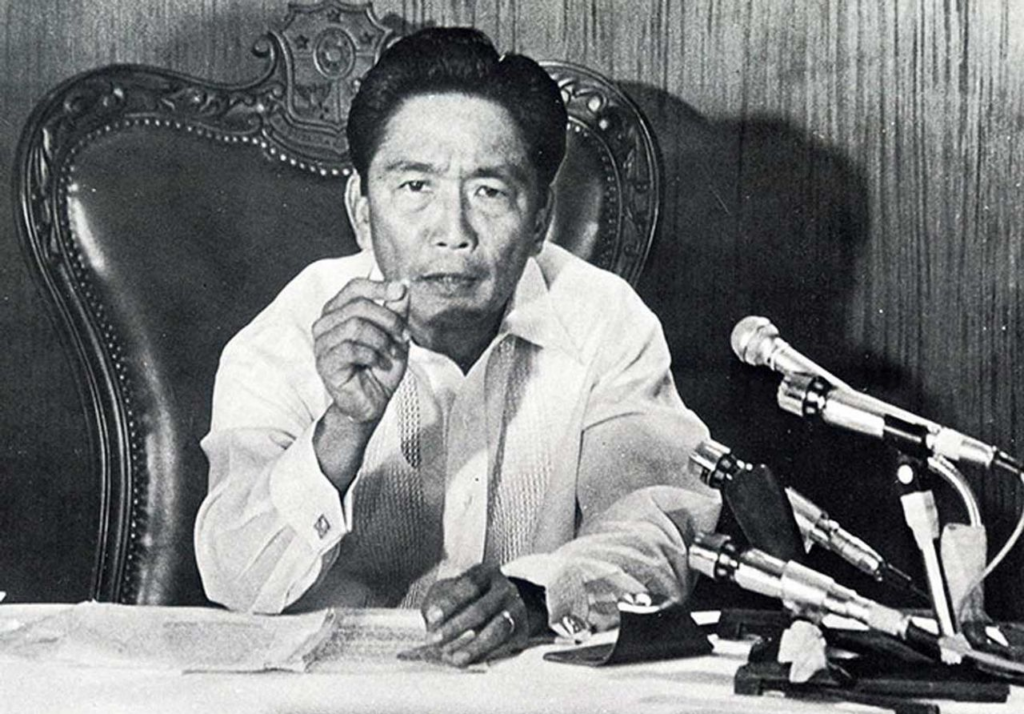
“Find out just what any people will quietly submit to and you have the exact measure of the injustice and wrong which will be imposed on them, and these will continue ’til they are resisted with either words, blows, or both.”
– Frederick Douglass
On September 23, 1972, Ferdinand Marcos announced to the country his declaration of Martial Law. His autocratic rule would last 14 bloody years until his ouster in the so-called EDSA revolution. 50 years later, his son and namesake, Bongbong Marcos, sits in Malacañang Palace.
While it may be true that the sins of the father are not the sins of the son, it’s easy to see upon closer inspection that the son has no shortage of sins of his own. And nobody’s really surprised, as blatant lying seems to run in the family.
Before everyone throws their hands in the air and decides to “give up on the Filipino people” (whatever that means), stop fooling yourself with the idea that we’re the first people to see a former dictator’s offspring rise to power. Even the late activist Obet Verzola saw this coming. Humans are messy and they vote (or don’t) for a multitude of reasons. If you consistently assume that everyone’s on the same page as you when it comes to the importance of elections, or the “correct way” to choose leaders, or thinking that leaders are even a necessity, then congratulations! You might be delusional. People are infinitely diverse, politically or otherwise, and to demand that we all agree on Candidate X reeks of the timeless authoritarian siren song of unity.
There are also many who are in a hurry to find people to blame for the results of the elections. Unfortunately, the first caricature that many land on is the “bobotante”, or the stupid individual voter. This smells intensely of elitism and a stunning lack of awareness of how strongly socialization affects one’s epistemology. For all of these people’s claims to having superior intellect, it’s funny how they can’t find any to make the jump from “stupid” to any other among the plethora of possible causes for people’s voting behavior, such as their access to education, information ecosystem, upbringing, transformative personal experiences, to name only a few.
If our blame-seeking is to have any potential of being useful, it should, at the very least, be proportional. And seeing as how the individual voter has nearly no power in this scenario, they make for a poor target. Better to focus criticism on pivotal actors: conniving politicians, enabling campaign partners, financial bedfellows, sociopathic technocrats, and others who continuously wield immense power for personal gain at our expense.
But if we really seek to be comprehensive, we need to go back further than the latest campaign period, back before Marcos was given a hero’s burial, back before the drug war, back before junior’s appeal for the vice presidency, back before the media and the state slowly but surely let the Marcos dynasty back into the spotlight and positions of power. And if we’re going to use proportional blame, a lot of it will fall on every single administration that followed EDSA dropping the ball. (Though some admittedly more than others, since a few didn’t really drop the ball so much as throw it to the ground and stomp it down.)
If elections are good for anything, they can serve as a sort of litmus test for what kinds of problematic behavior society is willing to let slide. And judging by our slate, we seem to be far too tolerant of liars, assholes, abusers, and their enablers. While we cannot change electoral outcomes all by ourselves, we do have power over our own lives and relationships. One thing that we can do is to learn to increase our sphere of compassion and appetite for accountability: by being more sensitive to the harmful behavior of those that are close to us to people who are not necessarily us. For as long as we let liars, assholes, and abusers have their way in personal matters, they will keep rising to the top. They know who to butter up and who to step on, and for as long as those they butter up don’t care about those who are stepped on, we will keep getting more of the same. And besides, how are we even supposed to oust someone in a position of power if we can’t even speak up to the bullies at school, at work, next door, or even in our own homes or worse, our own heads?
Many people treat September 21 as the anniversary of Martial Law. However, nothing magical happened on the day that a specific signature went privately on paper. It was only on the 23rd that it was announced, and so it graduated from being privileged information into public knowledge and, ultimately, an intersubjective reality. That is when the real power of Martial Law started to take hold over the lives of people, priming some with fear and others with impunity.
And because the law feels so real to most of us, one thing that we must learn over and over again is that it is powerless without anyone willing to enforce it. (Exhibit A: Imelda remains unarrested.) The many narratives we craft and institutions that we build are of varying usefulness to us, but, to quote Yuval Harari, it is of utmost importance that we are careful not to let our own myths trick us into harming each other. Don’t let wealth be an excuse to be selfish. Don’t let power be an excuse to be coercive. And don’t let faith be an excuse to be a bigot.
Untangling our shared myths to prevent harm takes dissent. Thinking of dissent leads to speaking of dissent, which in turn leads to acting in dissent. But it always starts with thinking freely, and it takes a lot of practice. So let’s keep practicing.

